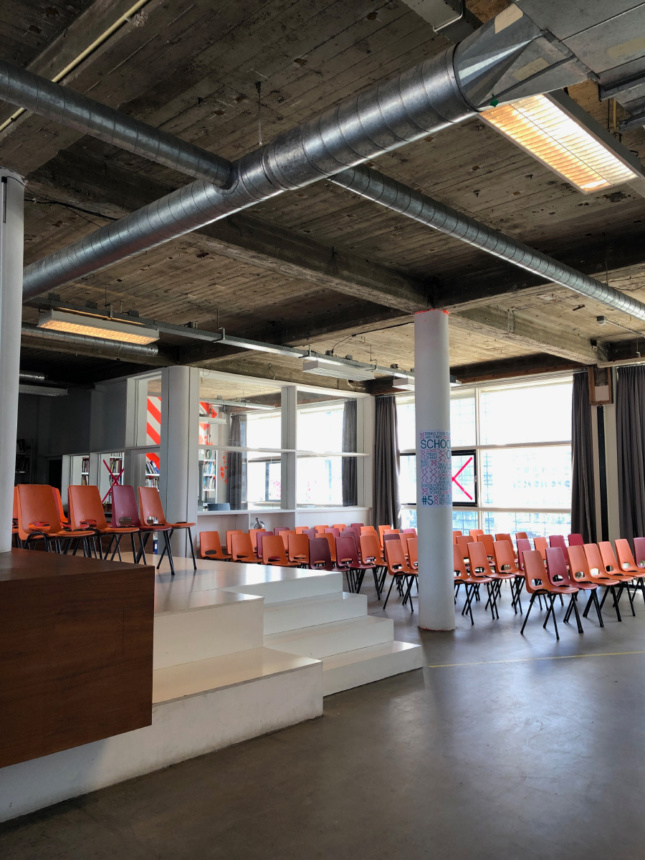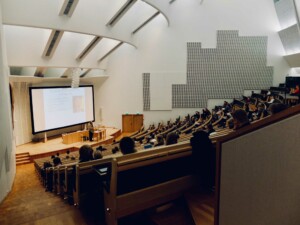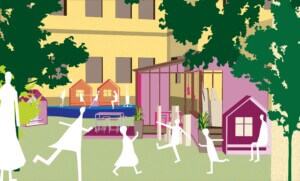In treating the city with an acupuncture-like approach, Rotterdam’s new Independent School for the City combines small-scale and temporary projects with activism to counteract the effects of tabula rasa planning. Strategies and solutions like ice cream trucks and radio stations exemplify the school’s broad perspective on architecture and urban design. The school recently closed its inaugural year with an exhibition of ideas from its eight-day spring program “Borders are for Crossing” which investigated the visible and invisible borders that create physical, social, and economic divisions.
Traditionally, the Netherlands holds tremendous collective confidence in its representative democracy, but corporatism and privatization are slowly but surely finding ways to nest in the country. This phenomenon is most widespread in cities—neighborhoods fall, revitalize themselves, land values rebound, and gentrification and inequality follow. As the school sees it, the pattern leads to more conservatism and only expands the need for an activist attitude in architecture and urbanism.
The school’s brand of urbanism is exemplified in its home, the Schieblock building, a modernist office building in the heart of the city, which is also home to the school’s founders, Dutch planning and design practices Crimson Architectural Historians and ZUS (Zones Urbaines Sensibles). The area around the Schieblock building had been grossly neglected, but in 2009, amid the economic crisis, ZUS initiated a renovation of the building that secured six floors of central, flexible rental spaces for creative entrepreneurs. This act—taking a stake in the city—expresses the ideology that drives the Independent School’s agenda.

This attitude grows from the credo of the school: independence. Rather than be obsessed with curricula and rankings, students are meant to be free to decide what topics are relevant and important to their fields. The school wants people to oscillate between craft, skill, and fields of knowledge, and wants to reimagine how topics are or could be related. Current research topics include migration, inequality, and climate change—though the school does not assert that these topics are original, new, or surprising.
ZUS is now leading a studio and seminar summer program in New York City with Syracuse University titled “Gentrification Lab NYC.” Students will investigate architecture’s role and responsibility around issues of gentrification that revolve around economic, social, and political transformations. After three weeks of field research at the Fisher Center, Syracuse’s academic home base in the city, students from that program will join the Independent School’s Climate Utopia summer program. Learning from both the U.S. and Europe will provide insight into how people have tried to adapt to their changing local conditions and how climate change, migration, and the need for housing form the critical triptych for the 21st century.
The school will continue into the 2019–2020 academic year, offering 12-week and yearlong programs, workshops, and collective assignments. Additional programming includes “School’s Out,” a Friday night celebration open to the public featuring talks, films, drinks, food, and tunes. Previous visitors include Georgeen Theodore, Peter Barber, Dore van Duivenbode, Lesley Lokko, Dirk Sijmons, and Maria Lisogorskaya.











